Consider the Nigerian critic for a moment. He is in a rather precarious position. He wants to respect the audience and their sensibilities while demanding that utmost filmmaking standards be maintained. He cannot be friends with mainstream filmmakers without compromising his ideals on quality filmmaking. He realizes the goodness and sadness of Nollywood is that audiences cannot consistently identify and choose quality films. The Nollywood critic is the industry’s bastard. Only the Nollywood scriptwriter is as maligned as the critic. He, the critic, trudges from one mediocre film to another, hoping to strike gold like Eyimofe, and sometimes he does; sometimes, he comes across bad films like Shadow Parties, but mostly, the industry films he is subjected to are mediocre, like Progressive Tailors Club.
Related:
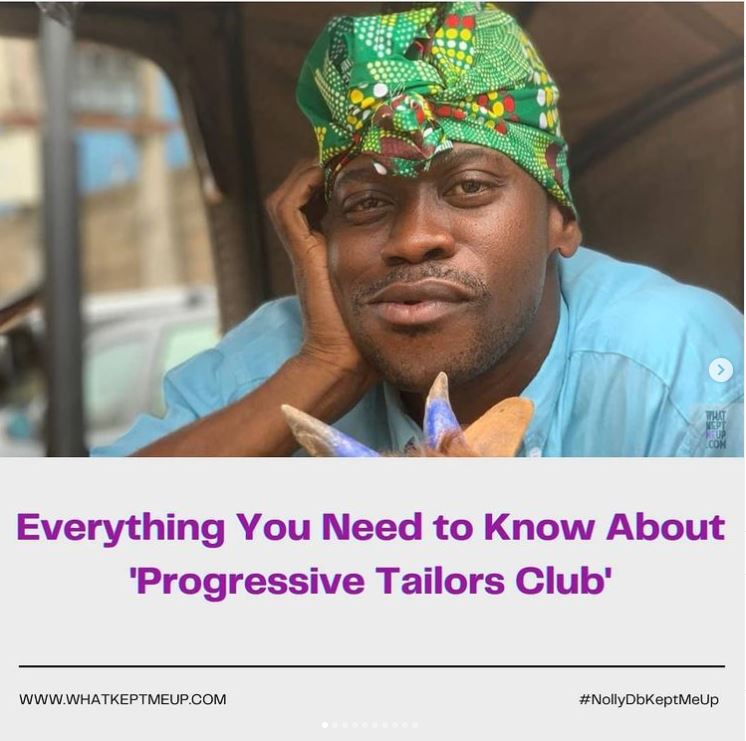 Everything You Need to Know about Progressive Tailors Club
Everything You Need to Know about Progressive Tailors Club
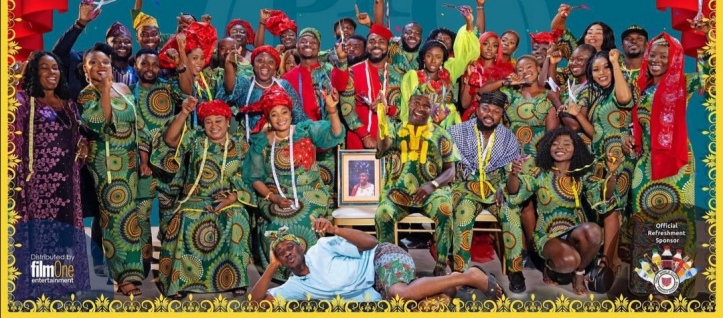
From the studio that brought you Toyin Aimakhu’s Prophetess comes yet another submission to the broad genre of comedy. Directed by Biodun Stephen (Breaded Life), the studio’s first female director, the film is termed a satire and, by its political leaning alone, this is true. A generic tailors association uncovers, after the death of its president, enormous corruption by its leaders and unscrupulous members. After a hefty 5 million naira donation by a politician, the association decides to hold an election to prevent further funds mismanagement. However, it soon becomes clear that all the candidates have dirty secrets to hide and are unfit to lead the association.
In the beginning, God said, “Let there be chaos,” and there was Progressive Tailors Club’s opening scene—maybe, even, every meeting scene. We are thrown into this gathering of unfunny characters trying too hard to be funny; too hard to the point of obviousness. This should not be surprising. While the film proclaims satire, essentially, like Prophetess, and indeed the majority of Nollywood comedies, it is a farce. This is, as has been stated in another review, the go-to branch of comedy for Nollywood. And it is not entirely a terrible thing. Farce is sister to satire and one can easily elevate the other. It is also the type of humour popularized by old Nollywood: from Baba Sala to Baba Suwe to Mr Ibu. However, this is 2021, Nollywood should have either redefined its farce or rejected it entirely. The industry resorts to farce now because it is the least tasking type of comedy to make; crass, ribald humour certain to guarantee enough audience engagement.
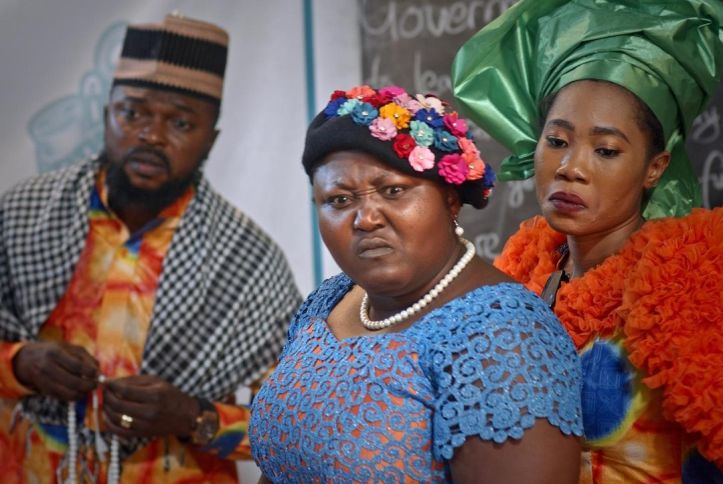
When Niyi Akinmolayan, executive producer and Anthill Studio’s creative director, said recently in an interview that “profit margin is everything” for his studio, he simply echoes the industry’s sentiment. The truth is our filmmakers, essentially, are average Nigerians, and their highest goal is financial, not artistic. The industry itself has consistently rewarded people who have little to no desire to make great art; popularity and mainstream acceptance is the modicum for acceptance. Evidence would be Shadow Parties sitting patiently on the AMAA 2021 shortlist for Best Nigerian Film. The critic sees all of these and he questions the choices. These are films that devalue the other films on the shortlist; films with terrible technical qualities.
With Wes Anderson-esque title cards, Progressive Tailors Club, for a moment, felt like it could define its structure. But the chaos is so pervading that within each title card, one has little idea what specific emotion the beat is to elicit. It is, as most of these comedies, loud. The sound wobbles occasionally; the skeletal, two-dimensional characters—played by Jaiye Kuti, Rachael Oniga, Femi Adebayo, Uzor Arukwe—fall one after another into the plot holes; and by the third act, there is no resonance with characters because core motivations weren’t set up anywhere in the first act. The film remembers this in the third act so it resorts, again, to a clichéd, old Nollywood technique: flashbacks. This critic could write a whole article questioning the authority flashbacks have come to hold at uncovering the truth in films. What makes this person’s flashback canonical over, say, any other person in the film? Flashbacks are deus ex machina for shoddy structuring in most Nollywood films and they are numerous in Progressive Tailors Club. Ask yourself, why does Olabisi (Bolaji Ogunmola) want to be president beyond “I want to change the status quo”? Any other tailor walking on the street can “want to change the status quo” so why is this Bisi character so special? Empathize with the critic. He asks these basic questions and finds no answers.
The critic’s desire, as most well-wishers of the industry, is that filmmakers who truly want to change the art find a way to sustain and keep making their art. Perhaps one of such filmmakers will make a different, not-farce comedy, and he will make another, and another, and the critic will find more gold than mediocrity, the bar of Nollywood artistry finally pushed through the roof.
Rating: 4/10
You can share your thoughts in the comments section or on our social media accounts.
 Keep track of upcoming films and TV shows with our calendar tool.
Keep track of upcoming films and TV shows with our calendar tool.
Side Musings
- May Rachael Oniga’s soul rest in peace.
Progressive Tailors Club is currently available on Amazon Prime Video.

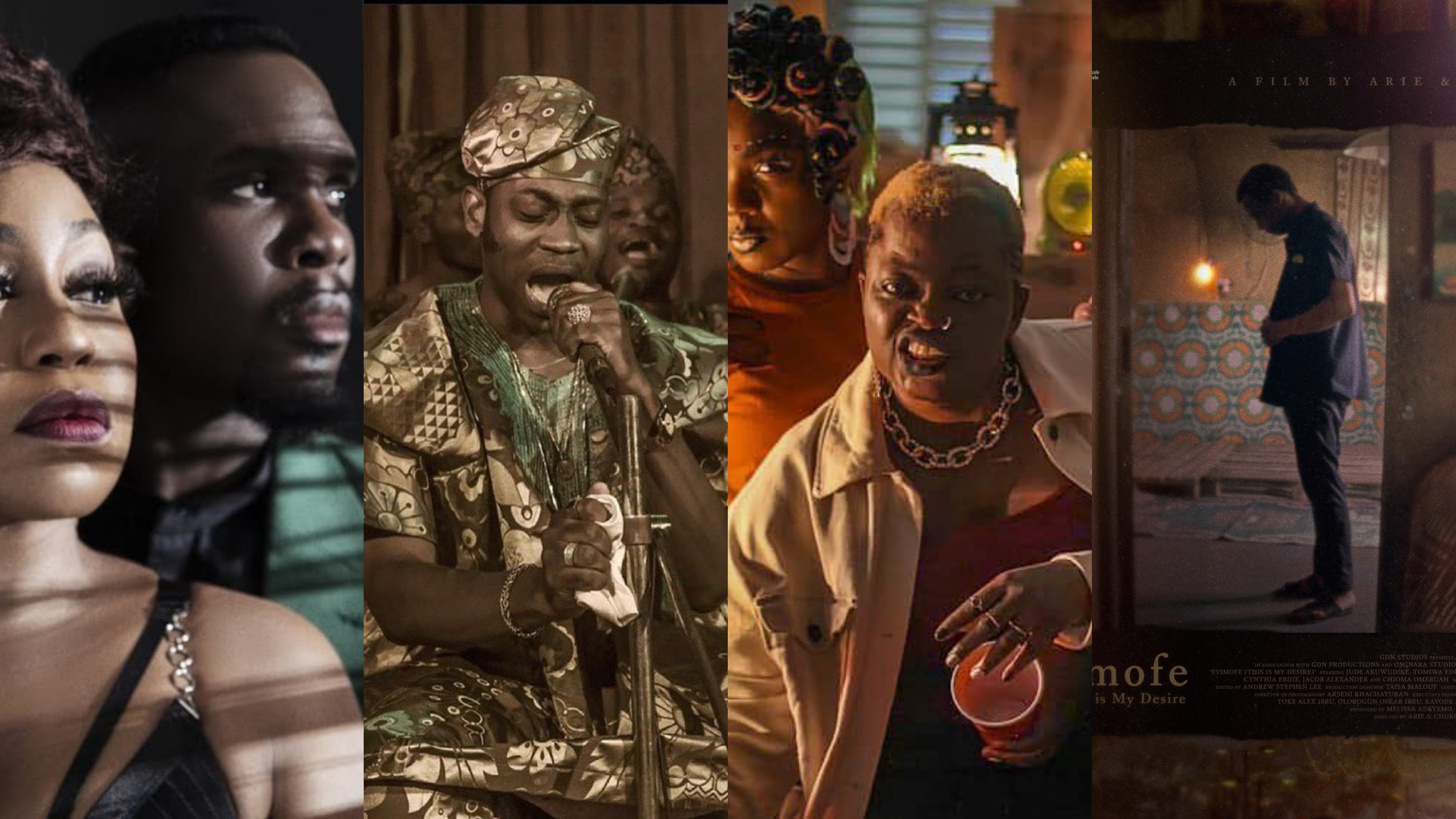

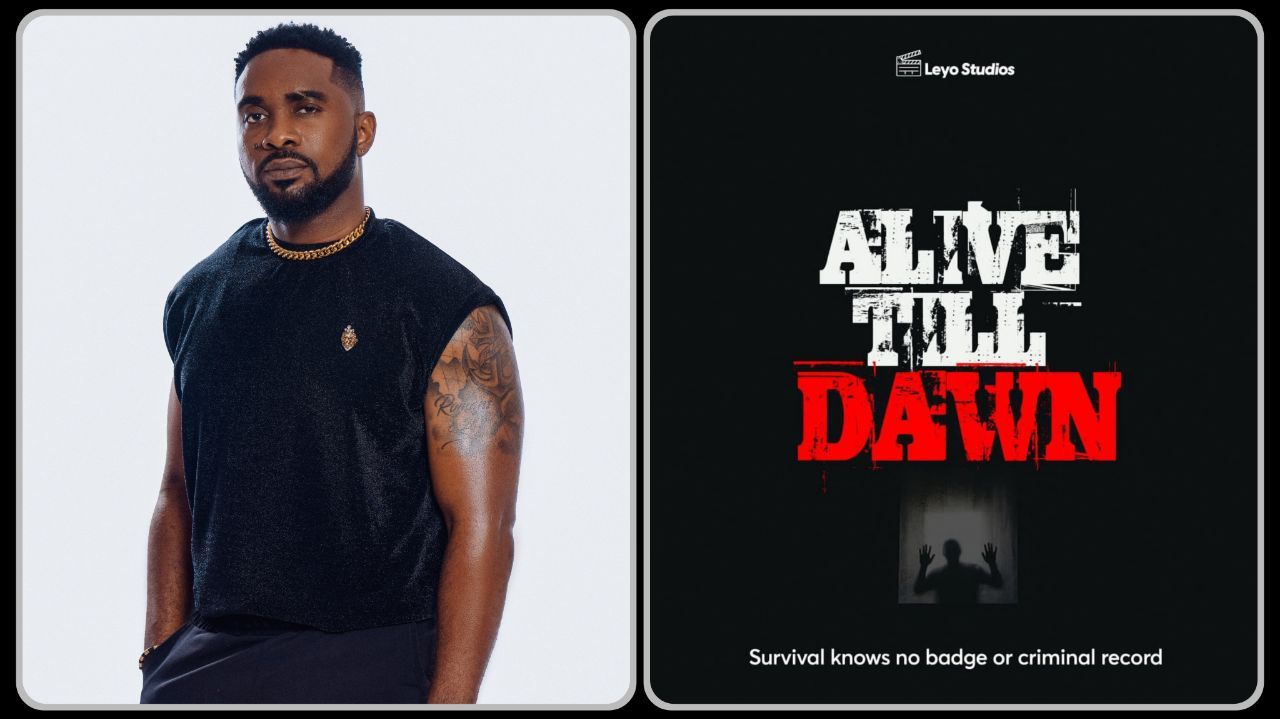


I remembered this movie and wanted to download it, thank God I checked here first for a review. No one does a better review than you guys. Thank you for doing this objectively